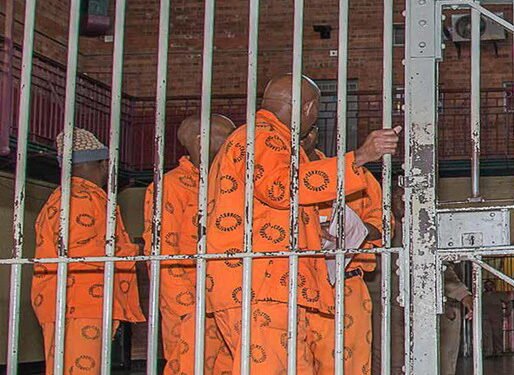The Portfolio Committee on Correctional Services received a briefing on the process leading to the cancellation or revocation of parole for inmates serving life sentences, highlighting concerns about granting parole to those who show no remorse for their crimes.
Acting Committee Chairperson Mr Janho Engelbrecht said committee members were referring to one inmate in particular, Mr Janusz Walus, who was serving a life sentence for the murder of South African Communist Party leader Mr Chris Hani. Members took exception to the fact that after Walus’s release he said in an interview that if given the opportunity, he would repeat his actions. Walus was deported to Poland after serving his sentence.
Members further enquired if it was possible to request that Walus be returned to South Africa, as they wanted him re-arrested for his utterances. Correctional Services Minister Pieter Groenewald told the committee that Walus’s sentence falls within the terms of the Van Vuren Constitutional Court judgement, which referred to those sentenced to life before 1 March 1994. The judgement confirmed that a life sentence meant serving at least 10 years of a sentence or 15 years in the case of serious circumstances. Thereafter these inmates are placed on parole for a period of three years. Over 360 lifers benefited from the Van Vuren judgement, including Walus.
The committee heard that Walus benefited from the Van Vuren finding, as he killed Mr Hani in 1993. He served his sentence and three-year parole period before he was deported.
Regarding the cancellation of parole for Mr Frans du Toit and Mr Theuns Kruger, who brutally raped Ms Alison Botha in 1997, the Minister explained that it is first for the Parole Board to assess an application and make a recommendation to the National Council for Correctional Services (NCCS). The NCCS will then assess the recommendation on the basis of all the files and make its own decision, which is sent to the Minister. Before making his determination in this matter, the Minister considered a risk analysis, among other things.
He said the department received notice of litigation from Ms Botha’s legal representatives indicating that, among other things, there had been no victim consultation in the parole process. The Minister indicated that the department received legal advice on the matter. He also considered the utterance of the Judge in the case, who said neither of the two should ever be allowed out on bail due to the brutality of the crime.
“The committee noted the Minister’s conviction on the matter and his stance that he is prepared to fight his decision to cancel the parole in court. We appreciate the fact that he took all matters into consideration when he made his determination,” said Mr Engelbrecht.
The committee also received a briefing on the process of overhauling South Africa’s parole system. The committee expressed serious concern about the number of vacancies on Correctional Supervision and Parole Boards. The committee heard that the Department of Correctional Services has had to defend a number of disputes in various courts owing to conflicts in the contracts of the Chairperson and Vice-Chairperson of the Correctional Service Parole Board . In an effort to put an end to this problem, a number of engagements were held with affected parties, including obtaining a legal opinion on how the matter could be resolved. The legal opinion obtained culminated in the drafting of a revised contract.
“The committee will monitor these matters very closely, as it is important to fully capacitate them,” said Mr Engelbrecht.









